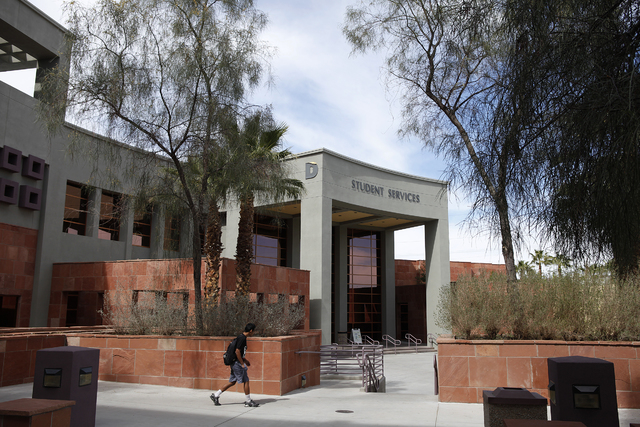Nevada community colleges won’t have separate governing system
CARSON CITY — A panel of lawmakers opted Tuesday to support recommendations to strengthen Nevada’s community colleges within the existing governing structure rather than embrace more dramatic changes sought by some advocates.
The policy recommendation by the Committee to Conduct an Interim Study Concerning Community Colleges came despite testimony from speakers seeking a separate governing system for the state’s four community colleges.
Lawmakers serving on the committee said that the Nevada System of Higher Education and its 13-member Board of Regents have more than seven months to demonstrate measurable progress toward improving outcomes for students attending community colleges before the Legislature comes back into session in February 2015.
Sen. Debbie Smith, D-Sparks, said she expects to see significant progress on the operation of the community colleges before the Legislature convenes next year.
Sen. Barbara Cegavske, R-Las Vegas, expressed disappointment that the final recommendations fell short of the more fundamental changes recommended by, among others, the Lincy Institute at UNLV. The institute in May issued a policy brief recommending a two-tier structure that separates UNLV, University of Nevada, Reno and the Desert Research Institute from the state’s two- and four-year colleges.
Recommendations from the committee include direction to the higher education system to create a vice chancellor position within the system to act as a coordinator and advocate for the colleges and support for the creation of a “system within a system” for the colleges. The votes on the recommendations were unanimous.
Chancellor Dan Klaich said the Board of Regents will create a committee to focus on community college issues as of July 1.
Some speakers, including Sylvia Lazos, a Boyd School of Law professor and co-chairwoman of the Latino Leadership Council, testified in support of the recommendations in the Lincy study.
Local governance for the colleges would put more pressure on the institutions and create more transparency on such issues as access and graduation rates, she said.
“We need more ownership of our community colleges,” Lazos said.
Local control would ensure that oversight would be more representative of the community, she said, noting that the Board of Regents has no Latino representation.
The panel also endorsed a bill draft to establish a new $5 million appropriation for a needs-based financial aid program. The program would be aimed at students attending community colleges and the state college with a maximum award of $2,000 per semester.
The committee also supported a bill to establish a $3.5 million Science, Technology, Engineering and Mathematics (STEM) Workforce Challenge Grant. The grants would be awarded to groups to support the development of programs related to these areas of study.
Cegavske voted no on both recommendations, supporting the concepts but arguing the funding requests should be made part of the higher education budget submitted to Gov. Brian Sandoval.
Contact Capital Bureau reporter Sean Whaley at swhaley@reviewjournal.com or 775-687-3900. Follow him on Twitter @seanw801.




























